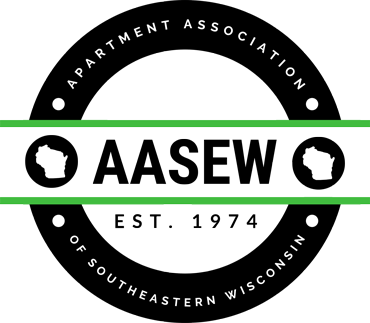Tristan is the Executive Vice President and shareholder with the law firm of Petrie+Pettit and focuses his practice in the area of landlord-tenant law representing landlords and property management companies throughout Wisconsin.
Call us: (414) 276-2850
What Is The Effect On The Eviction Process If A Tenant Files Bankruptcy?
Posted by Tristan R. Pettit, Esq. in Evictions, Bankruptcy / Comments
I have had a number of people ask me over the last several months to address what effect a tenant filing bankruptcy has on the eviction of that tenant. I have been delaying writing that blog post and I apologize for that. Bankruptcy is a tricky area of the law, and I am by no means an expert in bankruptcy law, but I will attempt to provide you with a general summary of how a tenant filing bankruptcy effects a landlord's attempt to evict that tenant.
Once an individual files bankruptcy (which I will refer to as "BK" for short to prevent having to type the word "bankruptcy" 25,000 more times during this post) all creditors of the debtor (person filing BK) are "stayed" from pursuing the debtor for repayment of any monies owed. This is referred to as the "automatic stay" and is specifically addressed in Title 11 of the United States Code (U.S.C.) at section 362. The automatic stay applies whether the individual files for BK under Chapter 7 (liquidation) or under Chapter 13 (reorganization).
There are some exceptions, but for the most part, the "automatic stay" prevents any creditor from attempting to collect a debt from the debtor. Before a creditor can pursue the debtor for money owed the automatic stay must be "lifted" by the BK court. So, essentially, you must get permission from the BK court before you can attempt to collect.
The need to seek permission from the BK court applies to a landlord that has not been paid rent by his/her tenant, if the tenant has filed for BK, as well. Practically speaking, this means that a landlord cannot telephone a tenant to ask when they are going to pay rent that is owed, a landlord cannot draft and serve a 5 Day Notice (or a 14 Day notice) on a tenant, a landlord cannot file an eviction action against a tenant, if the tenant has filed for BK.
As many of you who have already gone through the eviction process well know, the entire process can take anywhere from several weeks to months to complete. All the while you have no rent coming in. If your tenant has filed BK, the process will take even longer.
In order to "lift" the automatic stay, a landlord must file a Notice of Motion and Motion To Lift The Automatic Stay with the BK court. There is a filing fee that must be paid. The tenant/debtor then has a period of time in which to reply to the motion. Next, a hearing will be scheduled on the motion. This hearing is typically not even scheduled until after the time has passed for the tenant/debtor to reply to the motion, then due to the BK court's heaving calandar, the hearing will often be scheduled out several weeks into the future.
In the motion, and at the hearing, the landlord will need to set forth the pertinent facts and law and ask the BK court to lift the stay in order to allow the landlord to serve the tenant with a notice to pay or vacate, and if needed, follow that up with the filing of an eviction. There are various scenarios that can play out at the hearing -- too many to address in this post. Oftentimes, if the BK court determines it is feasible, the BK court will attempt to broker a deal if the tenant/debtor wants to continue to reside in the unit -- this often entails the landlord being strongly persuaded to allow the tenant/debtor to continue residing in the rental unit in exchange for the tenant/debtor agreeing to reimburse the landlord for past due rent via a payment plan.
One exception to the automatic stay that can greatly help landlords, is if the landlord has already obtained a judgment of eviction against a tenant, prior to the tenant filing BK, then the automatic stay does not apply and the landlord is allowed to execute the writ with the Sheriff and have the tenant removed from the rental unit (11 U.S.C. Section 362(b)(22)). In order for this exception to apply, the judgment of eviction must already have been granted prior to the tenant filing BK. If no judgment of eviction has been entered, then it is irrelevant whether or not the landlord has already served the 5 Day Notice, filed the eviction lawsuit, had the eviction lawsuit served on the tenant, or already appeared in court ---- the automatic stay will still apply.
It should also be noted that if a landlord has obtained a judgment of eviction prior to the tenant filing BK, this only allows the landlord to proceed with the execution of the writ. It does not allow the landlord to pursue the tenant for money owed (what is often referred to in Milwaukee County as the 2nd and 3rd casues of action). If a landlord wishes to obtain a money judgment against the tenant/debtor, s/he would still need to seek relief from the automatic stay from the BK court.
As you can see, a tenant's BK filing can have a HUGE impact on a landlord's ability to evict a tenant and recover possession of the rental unit. Once a tenant has filed for BK, a landlord must stop all attempts at collecting past due rent from the tenant or evicting them. Failure to abide by the automatic stay can result in a landlord being sanctioned by the BK court and if a landlord "willfully" violates the automatic stay, the injured party (the tenant/debtor) can recover actual damages from the landlord, including court costs and attorney's fees, as well as punitive damages.




